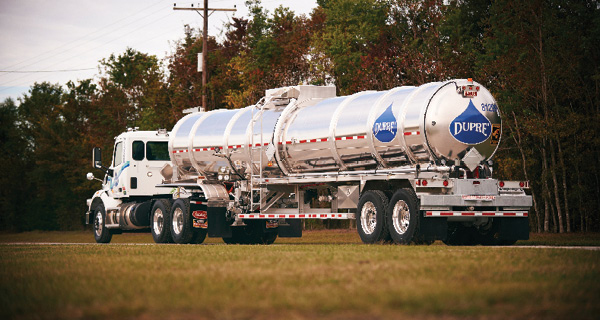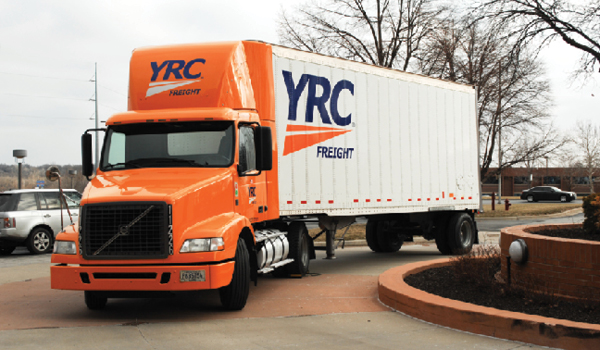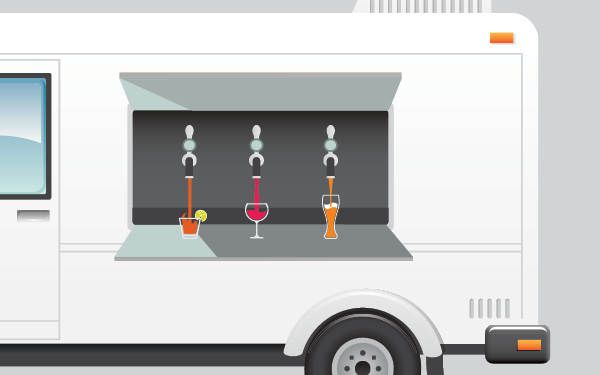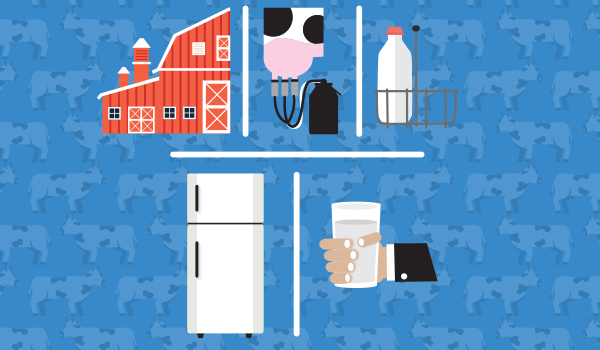Articles
Legislation, Public Policy, Regulations

Addressing Vendor Management and Shifting Global Trade Currents
Q: What are the most important aspects of good vendor management? A: Fairness is the first element that always comes to mind when this subject arises. Both parties need to be satisfied and gain benefits in each deal that is agreed upon. If not, deals tend to end faster than planned and turn into a […]
Read More
Lifting the Fog on Extreme Caution Driving
Inclement weather such as rain, snow, and fog is a constant feature of motor vehicle travel. During poor conditions, commercial truck drivers and their dispatchers must use discretion when deciding whether travel should continue and in what manner. Federal Motor Carrier Safety Regulations (49 C.F.R. § 392.14) specifically address driving in adverse weather conditions and […]
Read More
Chemical Logistics: Formula for Success
As the chemical industry continues to grow, shippers and their service partners work hard to keep product moving, trouble-free.
Read More
CBP’s ACE Reporting Will Reduce Global Trade Risks
Even though the rollout of the Automated Commercial Environment (ACE) has had a bevy of delays, quicker and easier data access will benefit government agencies and the trading industry. As the U.S. Customs and Border Protection (CBP) continues to roll out the ACE Single Window program throughout 2016, the goal remains the same: to eliminate […]
Read More
The Trials and Errors of Preventability Determinations
After a motor vehicle accident, it is common for motor carriers to determine whether their driver could have prevented the accident. This positive, safety-oriented process is known as a preventability determination. Carriers make this assessment for several reasons: to evaluate and possibly change company policies and procedures to prevent similar accidents, to determine whether it […]
Read More
Europe Raises the Compliance Bar. Is Your Supply Chain Prepared?
Sweeping regulatory changes in the European Union (EU)are raising complex questions for businesses and introducing new tensions along the world’s supply chains. Manufacturers and importers will soon be tasked with reporting the origin of some metals and materials used in their products. They also will be responsible for disclosing aspects of their suppliers’ human rights […]
Read More
The ABCs of Supply Chain Compliance
Understanding the myriad global trade rules and regulations on the horizon is not child’s play, and non-compliance could spell T-R-O-U-B-L-E.
Read More
Global Trade: The Certainty of Uncertainty
During times of economic growth and prosperity, global trade impacts the supply chain and how you match demand to supply. But what is the impact on the practice of supply chain management in today’s uncertain world? One thing is certain: Many government policies are disruptive to global supply chains and to the businesses and consumers […]
Read MoreSimplifying the CFR Shipping Rules
Even Einstein would have trouble understanding hazardous materials or dangerous goods (DG) regulations, agree 56 percent of respondents to a recent Labelmaster survey. And simply keeping pace with the changes in regulations is an inherent challenge, say 59 percent of respondents. With their daunting appearance, and massive word count, regulations can seem intimidating. They aren’t. […]
Read More
Crossborder E-commerce Into the U.S. Just Got A Lot Easier, U.S. Retailers Should Take Note and Plan Accordingly
E-commerce retailers worldwide are celebrating the passing of a new bill, which sees the U.S. de minimis rate increase from $200 to $800. Below the new threshold, the U.S. does not require any formal customs procedures, and no duties or taxes need to be paid by the consumer. This creates a huge opportunity for e-commerce […]
Read More
Custom Education: Guaranteeing A Perfect Fit
As supply chain complexity continues to increase, companies and schools are stitching together courses, tailoring entire curriculums, and adding employer-specific projects to executive education programs.
Read More
Thoughts on Independent Contractor Pitfalls
Hire. Employ. Train. These are a few words that can cost you dearly, should a governing entity decide it wants to look at your business model and how you utilize independent contractors (ICs). Do they wait at your location for their next job? Are your drivers in uniform? Do their vehicles have your logo on […]
Read More
Driver Coercion Rule: What Shippers And Carriers Need to Know
As a new truck driver coercion rule goes into effect, the need for communication with drivers is greater than ever. Motor carriers, shippers, receivers, and transportation intermediaries need to train drivers on the updated policies and procedures. In November 2015, the Federal Motor Carrier Safety Administration (FMCSA) adopted regulations that prohibit drivers from being coerced […]
Read More
Supply Chains that Rock Around the Clock: Rock and Roll All Night
Meet the Kings of the Road—a two-person sleeper team hauling a two-trailer set filled with LTL freight from Chicago to Denver.
Read More
Liquor Logistics: Solutions on Tap
To keep customers in good spirits, beverage companies need their liquor to move quicker. Here’s how they keep the drinks flowing.
Read More
A New Rx for Pharma Cold Chains
Pharmaceutical supply chains are adjusting to meet the demands of fast-changing biologics medicine.
Read More
FSMA: How to Avoid the Compliance Cops
HALT! Be on the lookout for the Food Safety Modernization Act, which will impact all food shippers and carriers. We rounded up some expert advice, because if you don’t know the new rules, whatcha gonna do when they come for you?
Read More
Winter Reading Guide 2016
Don’t let winter put a deep freeze on your logistics learning. Keep your knowledge evergreen by cozying up to books on wide-ranging topics, from food logistics to procurement practices.
Read More
Free Trade – Vital to Our Industry
Free trade has been a pillar of the U.S. economy for much of our nation’s history. Over the past several decades, the United States has negotiated many bilateral and multilateral free trade agreements (FTAs) to increase access to other countries’ markets while opening the U.S. market and benefiting consumers. In addition to membership in the […]
Read More
The Dairy Supply Chain: From Farm to Fridge
How milk and other dairy products moo-ve from tens of thousands of cows to store shelves across the country — with udder efficiency.
Read More